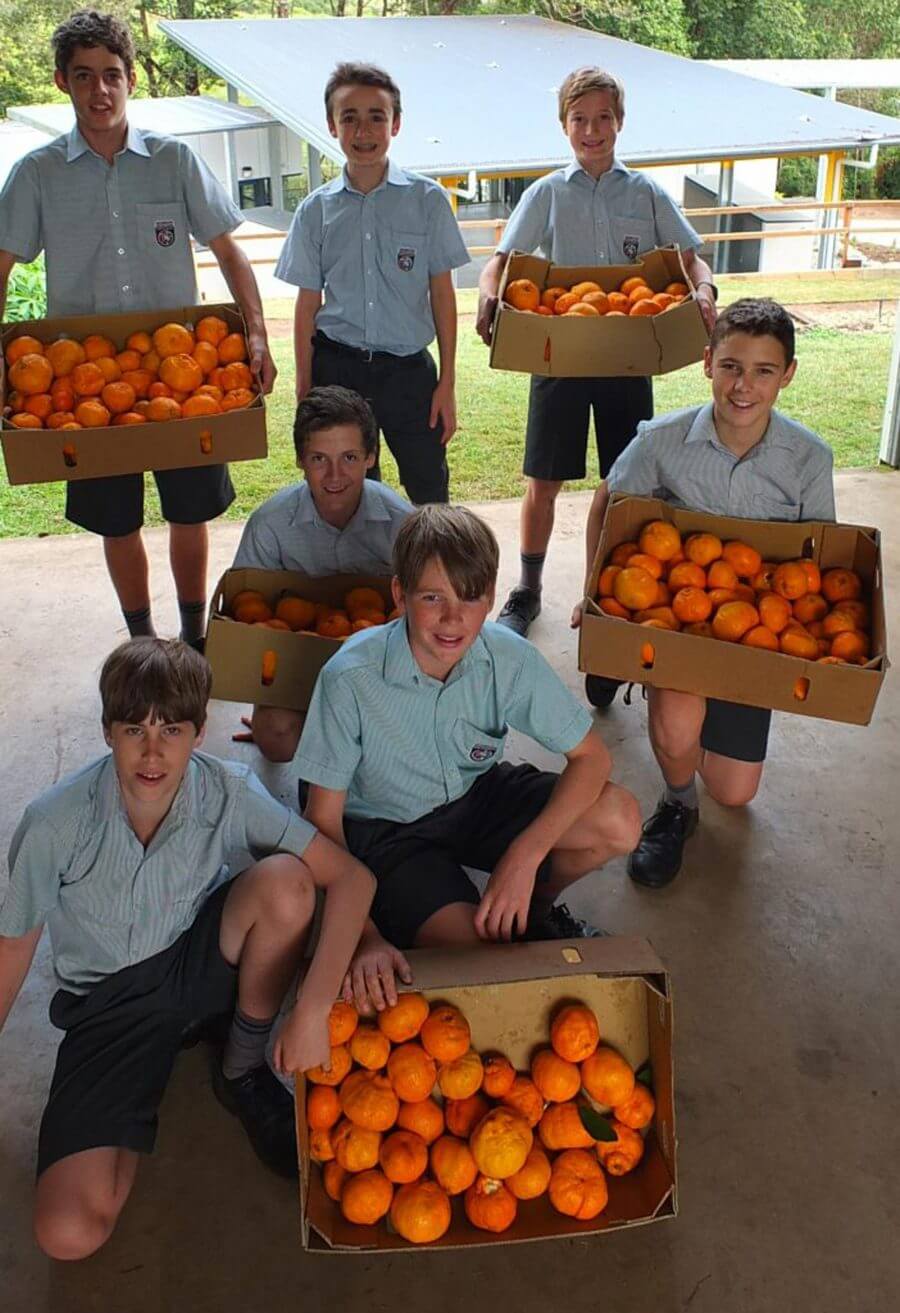Education ‘Creation Managers’

The Lord God formed the man from the soil of the ground and breathed into his nostrils the breath of life, and the man became a living being.
The Lord God made all kinds of trees grow from the soil, every tree that was pleasing to look at and good for food.
Then the LORD God took the man and put him into the garden of Eden to cultivate it and keep it.
(Gen 2:7, 2:9. 2:15)
In a world where agriculture has largely been dominated by practices reliant upon synthetic fertilisers and pesticides, the Agricultural Science Department at Nambour Christian College has chosen to forge a different path. Under the holistic stewardship of Phil Rienecker for the past two decades, children have been inspired to make a difference in the world starting from the ground up, using practices which seek to mimic nature rather than “overcome” it. Students as young as age three are being introduced to a philosophy that instills in them a deep sense of awe and respect for the amazing complexity and balance to be found in nature. Rather than believing that mankind needs to master nature, students are taught to learn from nature and to mimic the processes they see there to produce food in a way which sustains both the health of the planet, and those that consume the food produced.
For according to Mr. Rienecker, “Healthy soil means healthy plants. If we eat healthy, then we are healthy. We save the planet for the sake of humankind. Caring for plants means caring for people, and we can make a huge difference in people’s lives if we practice environmentally sustainable, affordable agriculture.”
At Berakah Farm, you won’t see soil being treated in a simplistic fashion like a chemistry set which is so often the case. Instead, students learn that within the soil lives a microbial workforce, the “hidden half of nature”, and that these little critters are essential to produce healthy plants. It’s not just chemistry, it’s biology too!
Agricultural Science studies start in Year 7 where every student gets to have their very own vegetable garden. Here they practice what they learn by planting, tending and maintaining, then harvesting their own vegetables… all with no synthetic pesticides! Not only this, they also learn and practice the principles of safe handling of animals like miniature horses and chickens. They are introduced to the importance of agriculture to the Australian economy and way of life, even their identity as a nation. Finally they are introduced to the vast array of employment and career options available in this huge Australian industry.
In Year 8, students are allotted a larger garden space and are expected to produce more food than they did in Year 7, perhaps producing enough for their own families and some to give away or sell. They also take responsibility for the laying chickens on the farm, and learn how to produce quality compost. In year nine, the work becomes totally project based and students are challenged to plan, grow and market a large quantity of vegetables to produce a profit, manage the school apiary which consists of three full-sized bee hives for the entire year, take responsibility for all aspects of the care and husbandry of the 12 miniature horses on the property, and lastly, run our indoor plant nursery for at least one term.
“Agricultural Science becomes a unifying subject for them, incorporating elements of maths, business, marketing, writing, accounting, and life sciences all tied together! They learn that you can actually make money farming God’s way, respecting nature rather than trying to overpower it,” says Mr Rienecker.
In Year 10, students get to use the College’s herd of Lowline cattle, learning how to work them in the paddock and in the yards. They learn about the various breeds and types of cattle industries Australia wide, about reproduction, breeding, vaccination, and disease management. They create specific purpose compost heaps, becoming proficient in producing microbial populations best suited to particular plant species. By Year 11 and 12, Agricultural Science takes on a very scientific emphasis with students being taught more advanced concepts, often conducting their own research trials on the farm and writing them up as scientific reports.
There is a “business” theme throughout all the years with students learning to appreciate that all agribusinesses must keep good records, plan and evaluate cashflow, manage their marketing well and seek to make a profit.
Students are often taken off campus to gain insight and inspiration from real life local agri-businesses like “Worms Down Under” and “Nutri-tech Systems”, or on longer excursions to farms or agribusinesses in the Lockyer or Mary Valley. These interactions help students to see that Agricultural Science is practical, tangible, doable, and a possible career path.



